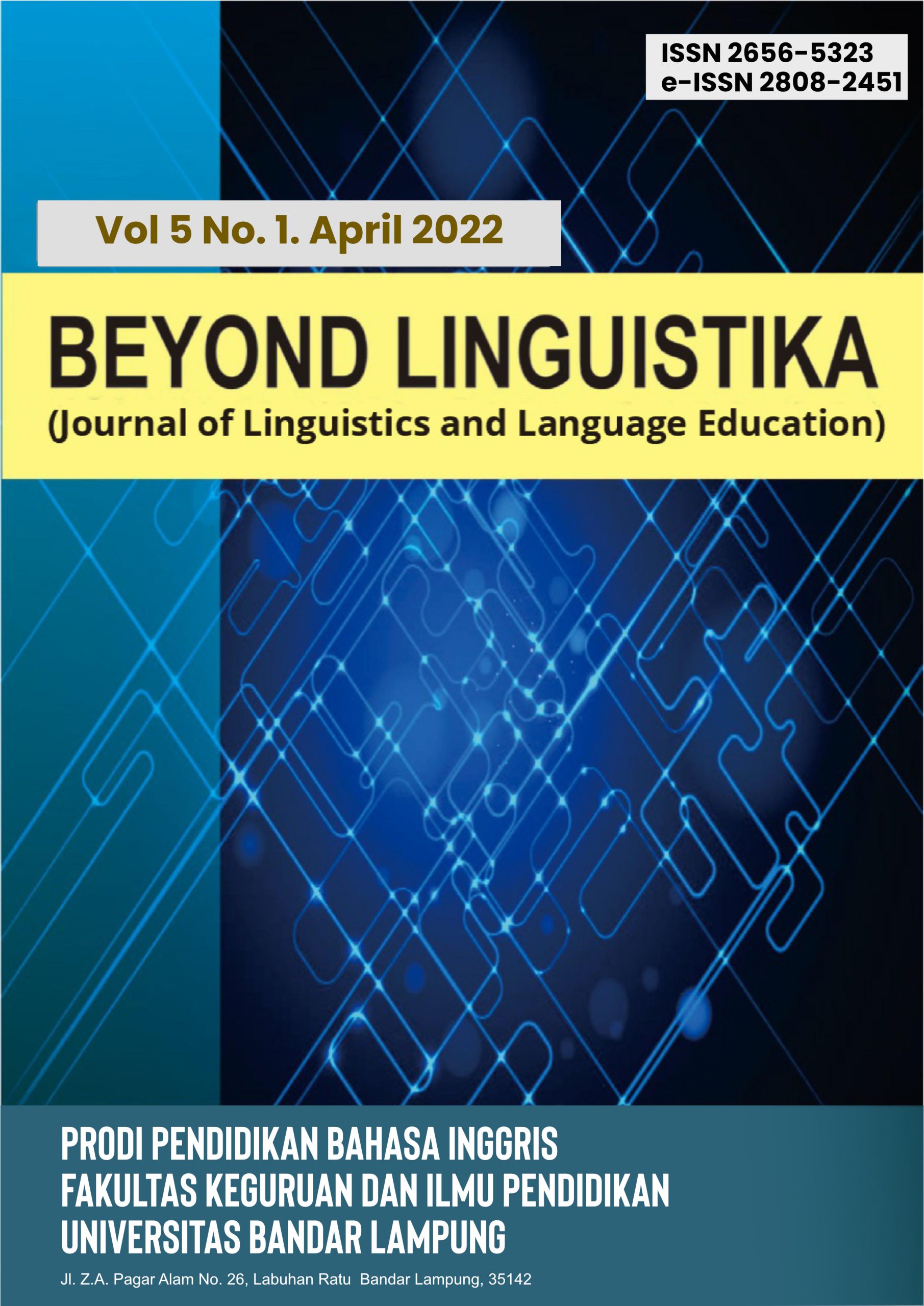ANALYSIS OF USING SUSTAINED SILENT READING STRATEGY TOWARD STUDENTS’ READING COMPREHENSION OF DESCRIPTIVE TEXT
Abstract
Keywords
Full Text:
PDFReferences
Asmaniarti, R. & Ratmanida, (2018). Using
Uninterrupted Sustained Silent Reading
(USSR) Strategy In Teaching Reading
Comprehension To Senior High School
Students, Journal of English Language
Teaching, 7(4), 671-680.
https://doi.org/10.24036/jelt.v7i4.1014
Bari, F, Yuliana, Y.G.S., & Sada, C. (2021).
Enhancing Students’ Reading
Comprehension in Descriptive Text
Through Sustained Silent Reading.
Journal of English Education and
Literature, 2(2), 71-84.
https://doi.org/10.38114/joeel.v2i2.144
Caldwell, R. (2008). HR business partner
competency models: re-contextualising
effectiveness. Human Resource
Management Journal, 18(3), 275-294.
https://doi.org/10.1111/j.1748-
2008.00071.x
Contero Urgal, C. (2019). Law and Business
Students’ Attitudes towards Learning
English for Specific Purposes within
CLIL and Non-CLIL
Contexts. Languages, 4(2), 45. MDPI
AG. Retrieved from
http://dx.doi.org/10.3390/languages40
Deci, E. L., & Ryan, R. M. (1985). Intrinsic
Motivation and Self-Determination in
Human Behavior. Berlin: Springer
Science & Business Media.
https://doi.org/10.1007/978-1-4899-
-7
Dobinson, K. L., & Dockrell, J. E. (2021).
Universal strategies for the
improvement of expressive language
skills in the primary classroom: A
systematic review. First Language,
(5), 527-554.
https://doi.org/10.1177/014272372198
Ismail, H., Syahruza, J.K., & Basuki. (2017).
Improving the Students’ Reading Skills
through Translation Method. Journal of
English Education, 2(2), 124-131.
Pilgreen, J.L. (2000), The SSR Handbook:
How to Organize and Manage a
Sustained Silent Reading Program.
Portsmouth, NH: Heinemann
Boynton/Cook Publishers
Siah, P.-C., & Kwok, W.-L. (2010). The
value of reading and the effectiveness
of sustained silent reading. The
Clearing House, 83, 168–174.
https://doi.org/10.1080/000986509035
Zein, S., Sukyadi, D., Hamied, F., &
Lengkanawati, N. (2020). English
language education in Indonesia: A
review of research (2011–
. Language Teaching, 53(4), 491-
https://doi.
https://doi.org/10.1017/S02614448200
DOI: http://dx.doi.org/10.36448/bl.v6i1.3353
Refbacks
- There are currently no refbacks.















